bilateral investment treaty
description: a treaty between two countries that establishes the terms for private investment across borders
22 results
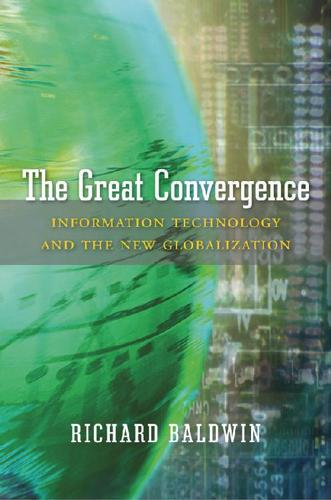
The Great Convergence: Information Technology and the New Globalization
by
Richard Baldwin
Published 14 Nov 2016
These new-style agreements are not deep in the “profound” sense of the word. They are deep in the sense that they affect matters deep inside national borders; they go way beyond tariff cutting. FIGURE 31: The explosion in Bilateral Investment Treaties from 1990. At about the time that developing nations started lowering their tariffs unilaterally, they also started signing “bilateral investment treaties.” These might be thought of as lopsided since they are basically a way of ensuring the property rights of foreign investors. Developing nations, however, came to see them as win-win. The investment-receiving nations—mostly developing nations—wanted to attract the jobs and factories that were being offshored as part of globalization’s second unbundling.
…
Mexico, for example, had a whole raft of regulations aimed at thwarting efforts of U.S. companies to buy Mexican companies or set up companies in Mexico that would compete with native firms. This attitude changed radically in the late 1980s. The evidence comes in the form of international agreements known as bilateral investment treaties (BITs). These are, in essence, concessions to rich-nation firms seeking to invest in the developing nation that signs the BIT. The concessions come in the form of disciplines that govern interactions between private foreign investors and host governments. For the most part, the provisions in these agreements constrain the developing nation’s sovereignty.
…
With these points in mind, it is easy to understand the radical change in the attitudes of developing nations toward trade liberalization and pro-investment, pro-services, pro-intellectual property rights (IPR) reforms. It is also easy to understand why the policy changes were synchronous with the changes in manufacturing and trade. The second unbundling drove all of them. More specifically, bilateral investment treaties (BITs) and deep bilateral regional trade agreements (RTAs) were signed with advanced-technology nations to provide the assurances. Interestingly, many developing nations embraced these disciplines but few saw a takeoff in their global value chain participation. This is a classic outcome of misthinking globalization—in particular it is misthinking the role of distance when it comes to face-to-face costs (that is, today’s binding constraint).
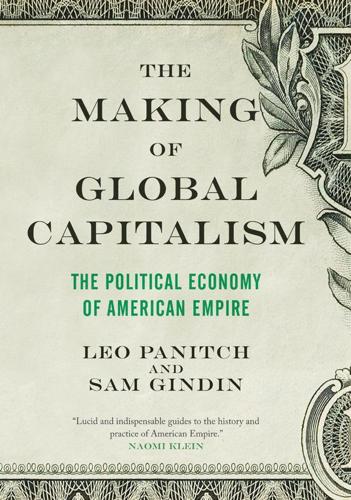
The Making of Global Capitalism
by
Leo Panitch
and
Sam Gindin
Published 8 Oct 2012
Global Investment, American Rules “Although trade and investment issues converged in the WTO, the complexities of international rule-making in relation to property rights limited the possibility of reaching investment agreements through multilateral trade negotiations, even though it was clear to all involved that foreign investor rights to securing “market presence—a firm foothold within states—is a constituent element of real freedom of trade.”32 The development of the rule of law in relation to investor rights instead proceeded through Bilateral Investment Treaties (BITs). Although these were more limited, they did cumulatively establish a new international legal framework. Especially important in this respect was the initiation by the US in 1977 of a bilateral investment treaty program, the central goal of which was firmly to establish in international law “the principle that the expropriation of foreign investment was unlawful unless accompanied by prompt, adequate and effective compensation.”33 This program was carefully designed to establish codified state commitments to specific standards of investment protection, and binding “depoliticized” quasi-juridical dispute-resolution procedures.
…
See Kapur and Webb, Governance-Related Conditionalities, p. 11. 84 Quoted in James, “From Grandmotherliness to Governance,” p. 46. 85 UNCTAD, Bilateral Investment Treaties 1959–1999, Geneva: United Nations, 2000, Figure 1; and UNCTAD Press Release, “Foreign Direct Investment on the Rise,” February 9, 1998. A complete BIT database is available at icsid.worldbank.org. See also the useful overview by Mary Hallward-Driemeier, “Do Bilateral Investment Treaties Attract FDI?” World Bank, Working Paper 3121, August 2003; and Simone Ptillo and Muao F. Guillen, “Globalization Pressures and the State: The Worldwide Spread of Central Bank Independence,” American Journal of Sociology 110: 6 (May 2005), pp. 1,770–1. 86 Lawrence Summers, “Go with the Flow,” Financial Times, March 11, 1998. 10.
…
As Chapter 9 shows, the practice of neoliberalism reinforced the material and ideological conditions for international legal rules guaranteeing free trade and for the national treatment for foreign capital in each social formation. This was exemplified by NAFTA, European Economic and Monetary Union, and the WTO, as well as by the bilateral investment treaties promoted by the US Trade Representative. In addition to the G7’s role in forging a consensus first among finance ministries and then among heads of state, the Bank for International Settlements re-emerged as the major coordinating agency for central bankers, while the IMF became the vehicle for imposing neoliberal “structural adjustments” on Third World economies.
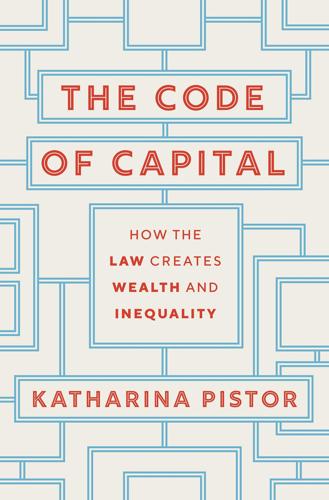
The Code of Capital: How the Law Creates Wealth and Inequality
by
Katharina Pistor
Published 27 May 2019
In plain English, the rights that arbitral tribunals fashion from the thin language of bilateral investment treaties supersede domestic law, including a country’s constitution. Again, it seems puzzling that sovereign states would sign up for this, but until the introduction of ISDS in bilateral investment treaties, international law was enforced by international courts or by arbitration between two sovereign states; disputes at this level are rare, as most conflicts are resolved through diplomacy, but private parties have proven much less constrained. Fast forward 40 years, with more than three thousand bilateral investment treaties in place and more than eight hundred state-investor disputes brought, and we can see how the puzzle comes together into a powerful picture.
…
States have harmonized some aspects of intellectual property rights in international treaty law, TRIPS for example, but many details still remain in the hands of individual sovereign states. Despite their resistance to divest control over property rights, states ended up giving away more than they may have intended. They have done so not through legal harmonization of substantive law or even of conflict-of-law rules, but by signing on to regional or bilateral investment treaties. These treaties rarely talk about property rights and instead focus on the investments made by foreign investors and their protection in the host state. Investments can take any form, from entering into contracts, licenses, concessions, all the way to ownership of shares or real property.
…
Unlike victims of human rights violations, investors do not have to seek remedies in a domestic court first; they can go straight to a tribunal outside the territory of the host state they are suing.21 Similar enforcement mechanisms by private parties against host states have been built into more than three thousand bilateral investment treaties (BITs). More than eight hundred cases alleging infringements of investments have been filed over the past three decades, with a total of $522 million in damages paid out, or about 40 percent of the sums demanded.22 Investors don’t always win; states do so in at least one-third of the cases, with the remaining cases being either settled (typically without disclosure about the terms of the settlements) or decided in favor of the investor.
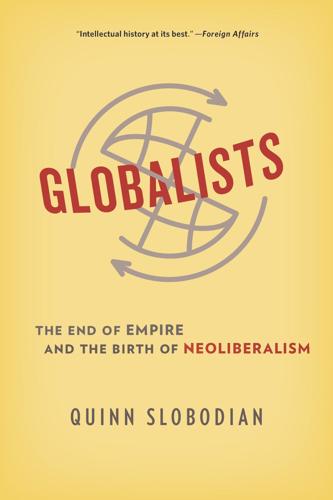
Globalists
by
Quinn Slobodian
Published 16 Mar 2018
The Bretton Woods system devised in 1944 offered scarce hope to neoliberals that it would function as a guardian of the world economy. The United Nations’ solution to the end of empire—granting votes to the proliferating nations of the non-European world—threatened the balance between dominium and imperium. Working again with the ICC, neoliberals helped craft a universal investment code and bilateral investment treaties that they hoped would safeguard capital in “a world of rights” (Chapter 4). The need to defend the world economy led some neoliberals to seemingly illiberal bedfellows. The case of Augusto Pinochet’s Chile is notorious; the neoliberal relationship to apartheid South Africa is less well studied.
…
He suggested that bilateral treaties might be used instead.114 From the beginning the ICC had indicated that a universal code was preferable, but their document would also work as the basis for bilateral relationships.115 In fact, the Montreux Congress had also produced a Model Bilateral Agreement drawing on interwar templates.116 Heilperin himself announced the failure of the “ ‘universalist approach’ to the problems of restoring the world economy to its former health.”117 When a second edition of his 1947 book The Trade of Nations came out in 1952, he stated that his opinion had moved in the intervening years to the quality of the bilateral treaty. State-to-state treaties were indeed much more the norm, including the Freedom of Commerce and Navigation treaties that the U.S. used up until the 1980s.118 The Bilateral Investment Treaty ended up offering the path that investor rights took from utopia to reality. Here, too, there was an MPS story. In 1959 the New York Times reported that Pakistan had “embarked upon a radical program of economic rehabilitation charted by the men behind West Germany’s remarkable postwar recovery.”
…
The advice was to halt the country’s industrialization campaign and to focus on agriculture to start an “all out export drive” on food crops.119 In 1959 Egon Sohmen, another MPS member, referred in the leading American economics journal to Pakistan’s “thoroughgoing reappraisal of its development planning along neoliberal lines.”120 The strategy was consistent with the development discourse in the MPS, which criticized a potential “overindustrialization” of the periphery and encouraged the Global South to keep its place in the international division of labor through agricultural production.121 Part of Pakistan’s reform was the signing of what became the template for all future bilateral investment treaties. Signed by the West German and Pakistani governments in November 1959, Erhard submitted the “Treaty for the Promotion and Protection of Investments” to the Bundestag in 1961.122 The treaty took language straight from the ICC Code and the Abs-Shawcross Draft, including the provision on compensation in the alien’s home currency and the expanded definition of “nationals” to include “any other company or association, with or without legal personality.”123 Where the universal approach had failed, the particular approach succeeded, bringing the seemingly radical conditions of international investor protection into binding law.
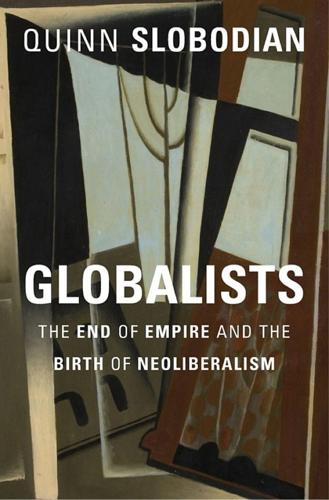
Globalists: The End of Empire and the Birth of Neoliberalism
by
Quinn Slobodian
Published 16 Mar 2018
The Bretton Woods system devised in 1944 offered scarce hope to neoliberals that it would function as a guardian of the world economy. The United Nations’ solution to the end of empire—granting votes to the proliferating nations of the non-European world—t hreatened the balance between dominium and imperium. Working again with the ICC, neoliberals helped craft a universal investment code and bilateral investment treaties that they hoped would safeguard capital in “a world of rights” (Chapter 4). The need to defend the world economy led some neoliberals to seemingly illiberal bedfellows. The case of Augusto Pinochet’s Chile is notorious; the neoliberal relationship to apartheid South Africa is less well studied.
…
He suggested that bilateral treaties might be used instead.114 From the beginning the ICC had indicated that a universal code was preferable, but their document would also work as the basis for bilateral relationships.115 In fact, the Montreux Congress had also produced a Model Bilateral Agreement drawing on interwar templates.116 Heilperin himself announced the failure of the “ ‘universalist approach’ to the prob lems of restoring the world economy to its former health.”117 When a second edition of his 1947 book The Trade of Nations came out in 1952, he stated that his opinion had moved in the intervening years to the quality of the bilateral treaty. State-to-state treaties were indeed much more the norm, including the Freedom of Commerce and Navigation treaties that the U.S. used up u ntil the 1980s.118 The Bilateral Investment Treaty ended up offering the path that investor rights took from utopia to reality. Here, too, t here was an MPS story. In 1959 the New York Times reported that Pakistan had “embarked upon a radical program of economic rehabilitation charted by the men behind West Germany’s remarkable postwar recovery.”
…
The advice was to halt the country’s industrialization campaign and to focus on agriculture to start an “all out export drive” on food crops.119 In 1959 Egon Sohmen, another MPS member, referred in the leading American economics journal to Pakistan’s “thoroughgoing reappraisal of its development planning along neoliberal lines.”120 The strategy was consistent with the development discourse in the MPS, which criticized a potential “overindustrialization” of the periphery and encouraged the Global South to keep its place in the international division of labor through agricultural production.121 Part of Pakistan’s reform was the signing of what became the template for all future bilateral investment treaties. Signed by the West German and Pakistani governments in November 1959, Erhard submitted the “Treaty for the Promotion and Protection of Investments” to the Bundestag in 1961.122 The treaty took language straight from the ICC Code and the Abs-Shawcross Draft, including the provision on compensation in the alien’s home currency and the expanded definition of “nationals” to include “any other company or association, with or without legal personality.”123 Where the universal approach had failed, the particular approach succeeded, bringing the seemingly radical conditions of international investor protection into binding law. ) ) ) Hayek began one of his books by comparing the law to a knife.
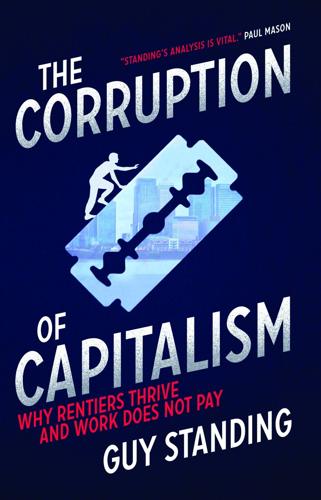
The Corruption of Capitalism: Why Rentiers Thrive and Work Does Not Pay
by
Guy Standing
Published 13 Jul 2016
These accords came into force in 1995 alongside the creation of the WTO. Although there has been no comprehensive multilateral agreement since then – the Doha Round launched in 2001 having run into the sand – there have been more than ten regional deals a year, on average, over that time.35 But trade deals are far outnumbered by bilateral investment treaties (BITs), part of a murky legalistic system creating a straitjacket favouring commercial interests. Some countries have hundreds of BITs. By the end of 2015, the USA had concluded twenty bilateral free trade agreements, nearly fifty BITs and sixty-five other investment accords with individual countries or groups of countries, and was hoping to conclude BITs with India and China.
…
When the economy crashed, the governments that followed (there were five presidents in ten days) introduced emergency measures, again under advice from the international financial agencies. These measures led to a spate of demands by foreign companies for compensation, based on the numerous bilateral investment treaties Argentina had been induced to sign in the 1990s. Between 2001 and 2012, fifty cases were brought for claims totalling $80 billion, 13 per cent of Argentina’s GDP.49 Of the twenty-seven cases stemming from the emergency measures, 30 per cent were settled out of court, 44 per cent resulted in a condemnatory award in favour of the corporation, and just 15 per cent ended up in complete favour of Argentina.
…
INDEX A Mechanical Age 1 Abbott, Arnold 1 AET (Academy Enterprise Trust) 1 agnotology 1 Airbnb 1, 2, 3, 4, 5, 6, 7 Alaska Permanent Fund 1 Allergan 1 allotments 1 Alperovitz, Gar 1 Altman, Sam 1 Amazon 1, 2, 3, 4 American Medical Association 1, 2 Amey 1 AMT (Amazon Mechanical Turk) 1, 2 Apple 1, 2, 3, 4, 5, 6, 7, 8 Arab Spring 1, 2 ASBOs (Anti-Social Behaviour Orders) 1 ASMS (Association of Salaried Medical Specialists) 1 Astor, Lord 1 Atkinson, Tony 1, 2, 3 Atlas Network 1 Auboin, Roger 1 austerity 1, 2, 3, 4, 5, 6, 7, 8, 9, 10, 11 automation 1, 2 Axelrod, David 1 Bahramipour, Bob 1 ‘bailouts’ 1, 2 Baker, Howard 1 Baker, Philip 1 Ballmer, Steve 1 Banco Espírito Santo 1 Bank of America 1, 2 Bank of England 1, 2, 3, 4, 5, 6, 7, 8, 9 Bank of Japan 1 banking systems and austerity 1 ‘bailouts’ 1, 2 and British Disease 1 and debt 1, 2, 3, 4, 5 and democracy 1, 2, 3, 4, 5, 6, 7 and ‘helicopter money’ 1 independence of central banks 1, 2 quantitative easing 1, 2, 3, 4, 5, 6 and rise of rentiers 1 trade and investment treaties 1 Barclay, David 1 Barclay, Frederick 1 basic income systems 1 Bayh–Dole Act (1980) 1 BBC (British Broadcasting Corporation) 1, 2 Benyon, Richard 1 BEPS (base erosion and profit shifting) 1 Bernanke, Ben 1 Berne Convention for the Protection of Literary and Artistic Works (1886) 1, 2 Berners-Lee, Tim 1, 2 Bernstein, Michael 1 Beveridge, William 1 BIEN (Basic Income European (later ‘Earth’) Network) 1 Bieńkowska, Elżbieta 1 Biewald, Lukas 1 Big Bang (1986) 1 Bilderberg Group 1 Billionaires Report (2015) 1 BIS (Bank for International Settlements) 1 BITs (bilateral investment treaties) 1 BlaBlaCar 1 BlackRock 1 Blair, Cherie 1 Blair, Tony 1, 2, 3, 4, 5, 6, 7 BNP Paribas 1 Born This Way foundation 1 Boston Tea Party 1 Bourdieu, Pierre 1 branding 1 Bretton Woods system 1, 2, 3 ‘Brexit’ debate/campaign 1, 2 Bridgepoint Capital 1, 2 British Disease 1, 2 British Rail 1 Broadbent, Ben 1 Brown, Gordon 1, 2, 3, 4 Brzezinski, Zbigniew 1 Buffett, Warren 1, 2 ‘build-to-rent’ projects 1 Burke, Edmund 1 Burns, Arthur 1 bus services 1 Bush, George H.
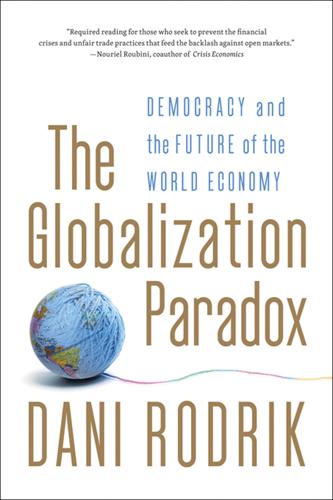
The Globalization Paradox: Democracy and the Future of the World Economy
by
Dani Rodrik
Published 23 Dec 2010
The trouble occurs when international tribunals contradict domestic proceedings on substantive matters (in the beef case, how to trade off economic benefits against uncertain health risks). In this instance, trade rules clearly trumped democratic decision making within the European Union. “Regulatory takings.” There are thousands of bilateral investment treaties (BITs) and hundreds of bilateral or regional trade agreements (RTAs) currently in force. Governments use them to promote trade and investment links in ways that go beyond what the WTO and other multilateral arrangements permit. A key objective is to provide a higher level of security to foreign investors by undertaking stronger external commitments.
…
The same year, a U.S. chemical company challenged a Canadian ban on a gasoline additive and received $13 million in a settlement.13 Perhaps the most worrying case to date involves a suit brought against the South African government in 2007 by three Italian mining companies. The companies charge that South Africa’s affirmative action program, called Black Economic Empowerment, violates the rights provided to them under existing bilateral investment treaties. The program aims to reverse South Africa’s long history of racial discrimination and is an integral element in the country’s democratic transition. It requires that mining companies alter their employment practices and sell a minority share to black partners. The Italian companies have asked for $350 million in return for what they assert is an expropriation of their South African operations.14 If they win, they will have achieved an outcome beyond the reach of any domestic investor.
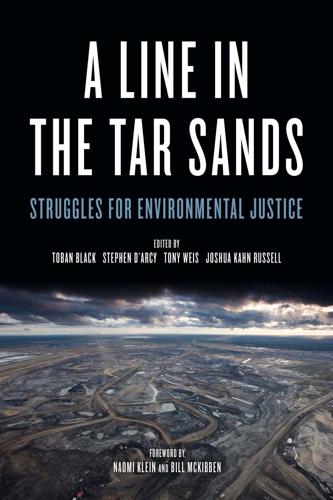
A Line in the Tar Sands: Struggles for Environmental Justice
by
Tony Weis
and
Joshua Kahn Russell
Published 14 Oct 2014
The links between modern free trade agreements, North American fossil fuel export pipelines, and the history of colonization must be made visible. Some of this analysis can be found in a publication entitled Colonization Redux: New Agreements, Old Games, which argues that “while some may see the bewildering proliferation of bilateral FTAs (Free Trade Agreements) and BITs (Bilateral Investment Treaties) throughout the world as a relatively new phenomenon,” in fact this mania “has deep roots,” which “lie in a long history of colonial exploitation, capitalism and imperialism. The classic colonial state was structured for the exploitation and extraction of resources.”11 An Alternative Approach Considering the limitations of previous campaigns against the FIPA with China can help us to achieve more effective analysis and resistance in the future.
…
See Enbridge Alberta Energy and Utilities Board, 116 Alberta Enterprise Group, 40 Alberta Federation of Labour, 14, 86 “Alberta is Energy” campaign, 37–38 Alberta Synthetic Crude Oil (SCO), 46–47 Alberta Taciuk Process (ATP), 108 Albright, Adam, 53 Alfred, Taiaiake, 259 Algeria, oil imports from, 31 Aliceville (Alabama), 182 alienation, 255, 299 Altvater, Elmar, 24, 25, 35 Amalgamated Transit Union (ATU), 220 American Federation of Labor and Congress of Industrial Organizations (AFL-CIO), 218–21; Center for Green Jobs, 219; Energy Task Force, 218 American Petroleum Institute, 60, 221 Americans for Prosperity, 282 ammonia, 182 Amos, Chief Henry (Gupsalupus), 155–56 Anishinaabe people, 17, 231, 253; worldview of, 237–38 Anonymous Collective, 164 anti-apartheid campaign, 290–91 anti-Asian attitudes, 92–93, 98 anti-capitalism, 69, 75, 263, 273, 311 anti-Chinese racism, 96, 98 anti-colonialism, 75, 244, 246, 259, 260–63, 265, 269, 275, 352n9 Anticosti Island, 82 anti-environmental lobbying, 282, 351n8 anti–fossil fuel campaigns, 309 anti-globalization, 96, 169 anti-nuclear movement, 81, 169, 319 anti-oppression, 244, 246, 263, 343n6 anti-pollution rules, 318 anti-racism, 244, 246, 261, 265 anti-sexism, 261 anti–shale gas movement, 82 anti-systemic escalation, 294–95 anti–wind turbine campaigns, 69 Apollo Alliance, 243, 245 Arctic, exploration and drilling in, 29, 31, 308, 315 Arctic National Wildlife Refuge, 242 Asian Pacific Environmental Network, 280 Assembly of First Nations, 69 asthma, 116 asymmetry, grappling with, 287–89 Athabasca Chipewyan First Nation (ACFN), 12, 18, 208–9, 211, 254, 271, 275 Athabasca River Basin, 5, 8–10, 15, 17, 32, 230; First Nations of, 12, 13, 16, 237 Attawapiskat, diamond mining in, 125 Australia, oil shale exploration and experimentation in, 100 Avatar, 249–50, 323n14 Baird, John, 62 Baker Estates (Michigan), 198, 200–201 Barlow, Maude, 94, 170, 323n14 Bass, Rick, 283 Bateman, Kenneth, 149 Bay of Fundy, toxic threats to, 78 Bayou Corner (Louisiana), sinkhole in, 182 Beaver Lake Cree, 18, 119–24, 271, 274 Bentley, Robert, 183 benzene, 10, 135, 182, 197, 202 Bernard, Elaine, 97 Berry, Thomas, 239 Berry, Wendell, 170 Bhutan: Gross National Happiness Index, 238 Big Greens, 168 Big Oil, 49, 53, 70, 72, 119, 123, 126, 240, 242–47 Bilateral Investment Treaties (BITs), 97 bioaccumulation, 9 Bishop, Mike, 192 bitumen, 4–7, 9, 15–17, 20, 46, 77, 117, 119, 152, 162, 167, 179, 206, 247, 253–54, 269–70, 281, 287, 291–93, 305, 310, 312, 314; in Chemical Valley, 135–37, 139–40; cleanup of, 198; diluted (“dilbit”), 137, 146, 183, 195–99, 202, 205, 232, 236, 254, 302; environmental and health risks of mining, transporting, and refining of, 10–12; extraction of, 8–9, 51–52, 95, 100–103, 120, 129, 142; and Gulf Coast, 182–83; in Kalamazoo, 195–206; in Madagascar, 104–5; as nationalized resource in Venezuela, 102; and Northern Gateway project, 146–47, 149–50, 152; refining of, 8, 79; toxic, 78; in Trinidad and Tobago, 103; as “ultra-heavy” oil, 101 Bitumen—Adding Value conference, 134–35, 143 Bitumen: Canada’s National Disaster demonstration, 135 Blackheath Camp for Climate Action, 208 Blaney, Ta’Kaiya, 164 Bloch, Ernst: The Principle of Hope, 320 blockades, 80, 114, 143–44, 157–58, 189, 288, 293; as direct action, 343n2 (ch.17).
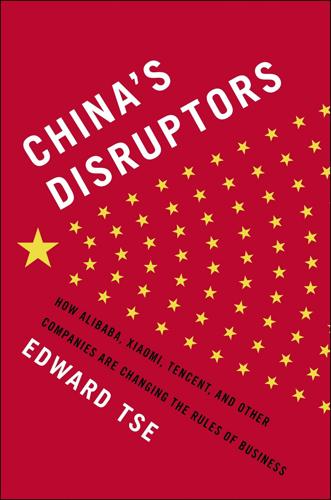
China's Disruptors: How Alibaba, Xiaomi, Tencent, and Other Companies Are Changing the Rules of Business
by
Edward Tse
Published 13 Jul 2015
To avoid any serious backlash, greater policy cooperation will be needed between China and the United States, and possibly, though to a lesser extent, Europe. For China, the big question will be whether to open its investment doors further. Currently, China and the United States are in the early stages of negotiating a bilateral investment treaty that could have as great an impact on investment as China’s World Trade Organization entry. Making this transition will be a challenge. China has long resisted attempts by outside companies or countries to control fully the way they operate within its markets. For example, the Chinese government still wants to retain its “negative” investment list, a list of sectors and industries from which it bars or strictly restricts overseas investment such as finance, Internet, and telecom services.
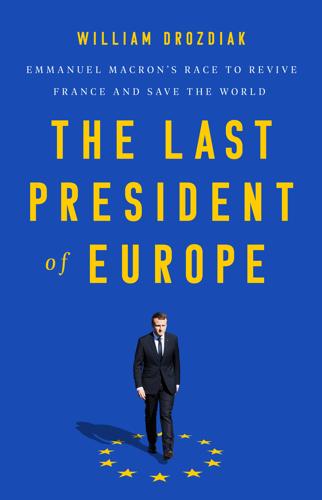
The Last President of Europe: Emmanuel Macron's Race to Revive France and Save the World
by
William Drozdiak
Published 27 Apr 2020
The European Commission paper reserved its toughest criticism for China’s attitude toward Europe on trade and investment. The Commission demanded that China “deliver” on its past commitments to curtail industrial subsidies as prescribed by the World Trade Organization and to complete a bilateral investment treaty with the European Union by 2020. The negotiations had dragged on for seven years, and the EU was concerned that China was trying to delay any deal as long as possible. Finally, the Commission urged member governments to follow a ten-point plan that would coordinate policies within the European Union “in order to exert more leverage in pursuit of its objectives.”

Culture Shock! Costa Rica 30th Anniversary Edition
by
Claire Wallerstein
Published 1 Mar 2011
It is a signatory to many regional and international trade agreements, such as the General Agreement on Tariffs and Trade (GATT), the World Trade Organisation (WTO), and the Association of Caribbean States. It has been granted preferential conditions in the USA and Europe, and has signed bilateral trade agreements with several countries in the region. It also has bilateral investment treaties with many countries (mostly European). The ratification of CAFTA (the Central American Free Trade Association) in 2007 has prompted the liberalisation of Costa Rica’s agriculture and other export sectors, services, intellectual property, labour laws and areas involving natural resources.
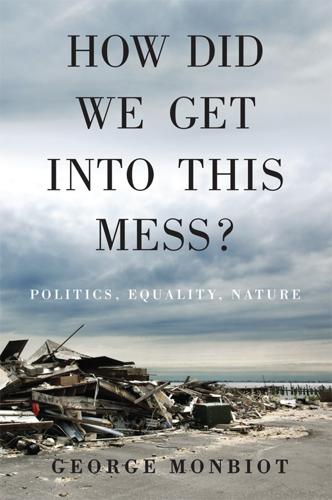
How Did We Get Into This Mess?: Politics, Equality, Nature
by
George Monbiot
Published 14 Apr 2016
A Global Ban on Leftwing Politics 1David Cameron, 23 January 2013, ‘EU speech at Bloomberg’, gov.uk. 2George Monbiot, 14 October 2013, ‘From Obamacare to Trade, Superversion Not Subversion Is the New and Very Real Threat to the State’, theguardian.com. 3McCabe Centre for Law and Cancer, ‘Philip Morris Asia Challenge under Australia–Hong Kong Bilateral Investment Treaty’, mccabecentre.org. 4Corporate Europe Observatory, 3 June 2013, ‘A Transatlantic Corporate Bill of Rights’, corporateeurope.org. 5Thomas McDonagh, 2013, Unfair, Unsustainable, and Under the Radar, The Democracy Center, democracyctr.org. 6Glyn Moody, 23 July 2013, ‘Eli Lilly Raises Stakes: Says Canada Now Owes It $500 Million for Not Granting a Patent It Wanted’, techidirt.com. 7McDonagh, Unfair, Unsustainable, and Under the Radar; Public Citizen, March 2013, ‘U.S.
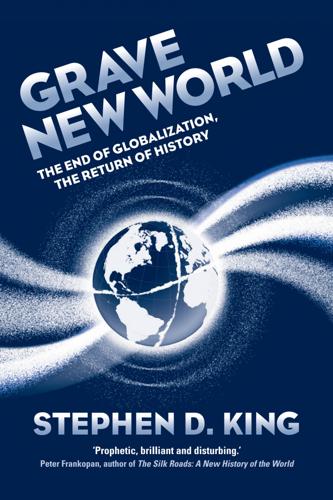
Grave New World: The End of Globalization, the Return of History
by
Stephen D. King
Published 22 May 2017
Attempts to attract global capital can result in national tax authorities indulging in a corporation tax ‘race to the bottom’: indeed, corporate tax rates have plunged since the early 1980s.6 Accepting the strictures of the World Trade Organization may only preserve a decidedly skewed playing field, preventing today’s poor countries from using techniques employed by others in the past to foster economic progress. Without the use of protectionist measures to nurture infant industries, for example, it is unlikely that the nineteenth-century US economy or the East Asian economies of the late twentieth century would have made significant gains. Signing up to bilateral investment treaties might seem like a good way of attracting much-needed foreign investment into a country; but in the event that something goes wrong, whom does the treaty protect and who is left to pay the bill? UNSTABLE BORDERS All these are common criticisms of globalization in a world of nation states.
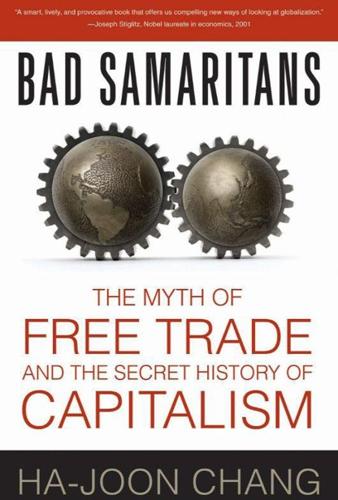
Bad Samaritans: The Myth of Free Trade and the Secret History of Capitalism
by
Ha-Joon Chang
Published 26 Dec 2007
Through the World Trade Organisation, they have introduced the TRIMS (Trade-related Investment Measures) Agreement, which bans things like local content requirements, export requirements or foreign exchange balancing requirements. They have been pushing for further liberalization through the current GATS (General Agreement on Trade in Services) negotiations and a proposed investment agreement at the World Trade Organisation. Bilateral and regional free trade agreements (FTAs) and bilateral investment treaties (BITs) between rich and poor countries also restrict the ability of developing countries to regulate FDI.53 Forget history, say the Bad Samaritans in defending such actions. Even if it did have some merits in the past, they argue, regulation of foreign investment has become unnecessary and futile, thanks to globalization, which has created a new ‘borderless world’.
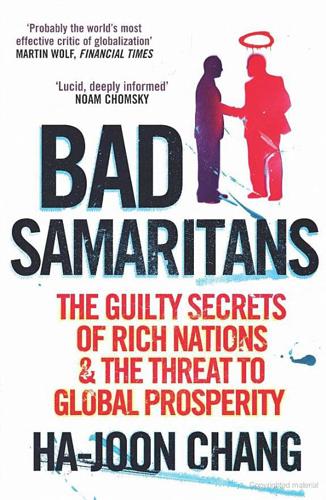
Bad Samaritans: The Guilty Secrets of Rich Nations and the Threat to Global Prosperity
by
Ha-Joon Chang
Published 4 Jul 2007
Through the World Trade Organisation, they have introduced the TRIMS (Trade-related Investment Measures) Agreement, which bans things like local content requirements, export requirements or foreign exchange balancing requirements. They have been pushing for further liberalization through the current GATS (General Agreement on Trade in Services) negotiations and a proposed investment agreement at the World Trade Organisation. Bilateral and regional free trade agreements (FTAs) and bilateral investment treaties (BITs) between rich and poor countries also restrict the ability of developing countries to regulate FDI.53 Forget history, say the Bad Samaritans in defending such actions. Even if it did have some merits in the past, they argue, regulation of foreign investment has become unnecessary and futile, thanks to globalization, which has created a new ‘borderless world’.
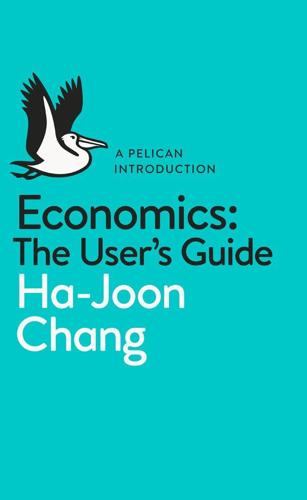
A Pelican Introduction Economics: A User's Guide
by
Ha-Joon Chang
Published 26 May 2014
Countries have also demanded that TNC subsidiaries buy certain proportions of inputs locally (known as the local contents requirement).19 Japan, Korea, Taiwan and China have been particularly successful with these regulatory measures – they allowed, or even welcomed in some sectors, FDI but put in all those measures to ensure that the benefits were maximized while the costs were minimized. However, using the WTO agreement (known as the TRIMS agreement, or the Trade-related Investment Measures agreement), bilateral free-trade agreements (FTAs) and bilateral investment treaties (BITs), the rich countries (including Japan, which used to regulate FDI most severely in the world) have made a number of these regulations, such as the local contents requirement, ‘illegal’.20 The success with all those regulations in countries such as Japan and China does not mean that ‘stick’ is the only way to manage FDI.
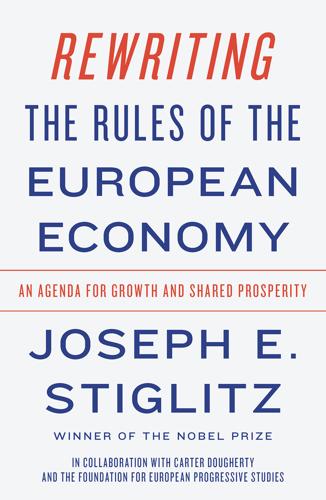
Rewriting the Rules of the European Economy: An Agenda for Growth and Shared Prosperity
by
Joseph E. Stiglitz
Published 28 Jan 2020
. ** As we noted in Chapter 6, though we often think of these as “offshore financial centers,” some jurisdictions in the United States (Nevada, Delaware) and the City of London have also profited from these nefarious activities. †† According to a 2015 report by the United Nations Conference on Trade and Development, around 60 percent of completed ISDS cases favored investors while only 40 percent favored governments. ‡‡ While similar provisions existed in some 1,400 bilateral investment treaties, the new agreements mark the first time these provisions fall under an EU-level trade deal with application to all economic sectors. The Comprehensive Economic and Trade Agreement with Canada, which was signed in 2017, embraces ISDS, but with judges chosen from a permanent 15-member tribunal.
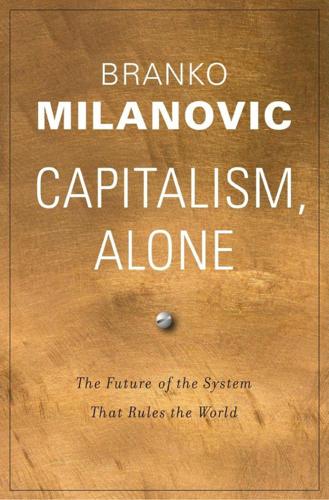
Capitalism, Alone: The Future of the System That Rules the World
by
Branko Milanovic
Published 23 Sep 2019
Capital-exporting nations either conquered other countries or made sure that they controlled the economic policy of quasi-colonies so that places like China, Egypt, Tunisia, and Venezuela had no choice but to protect the property rights of foreigners.11 The same role that colonialism played then, more brutally, is played today by the International Monetary Fund (IMF), the Multilateral Investment Guarantee Agency, hundreds of bilateral investment treaties, and other global governance bodies: they are the guardians against nationalization and the abuse of foreign property. In that respect, globalization has created its own governance structure. Global value chains have redefined economic development. It was argued in the past that the participation of developing countries in the international division of labor was inimical to their development in at least three ways and would lead to the “development of underdevelopment,” as André Gunder Frank termed it in an influential article published in 1966.

The End of Power: From Boardrooms to Battlefields and Churches to States, Why Being in Charge Isn’t What It Used to Be
by
Moises Naim
Published 5 Mar 2013
It was a state-led, socialist dream, and the kind of investment now flourishing is quite different from what it imagined. Nevertheless, South-South investment is today one of the shaping trends of global business.52 United Nations data show that outward foreign direct investment (OFDI) from developing and transition economies began to outpace OFDI from rich countries in 2003. Twenty of the fifty-four bilateral investment treaties signed in 2010 were between developing countries, and they increased further in importance, both as recipients of FDI and as outward investors. Foreign direct investment outflows from developing countries reached an unprecedented 29 percent of total direct investment flows in 2010, and this strong growth continued in 2011 and 2012 despite global economic woes.53 The number of developing-country firms in the league tables of the world’s largest companies is continually growing.

The Ripple Effect: The Fate of Fresh Water in the Twenty-First Century
by
Alex Prud'Homme
Published 6 Jun 2011
Banzer used this as a pretext to declare that the company had “abandoned” its lease and revoke its $200 million contract. Bechtel responded by filing a $25 million lawsuit with the International Centre for Settlement of Investment Disputes, an appellate arm of the World Bank, for “lost profits under a bilateral investment treaty.” In 2003, Banzer and other politicians who had brokered the deal resigned or were thrown out of office. In 2006, a settlement was reached between the new government of President Evo Morales (who as a congressman had supported the protesters) and Aguas del Tunari: both sides agreed to drop claims against the other.
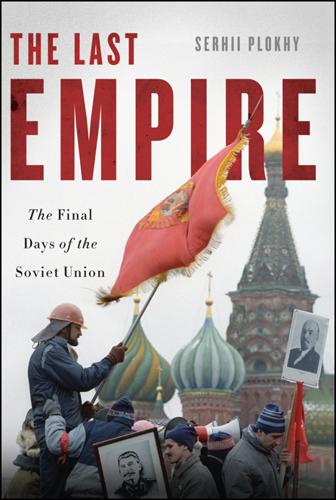
The Last Empire: The Final Days of the Soviet Union
by
Serhii Plokhy
Published 12 May 2014
Thus, unless you can take these positive steps very soon, I will freeze many elements of our economic relationship including Export-Import credit guarantees; Commodity Credit Corporation credit guarantees; support for “Special Associate Status” for the Soviet Union in the International Monetary Fund and World Bank; and most of our technical assistance programs. Further, I would not submit the Bilateral Investment Treaty or Tax Treaty to the United States Senate for consent to ratification when and if they are completed. One paragraph of the letter presented the history of US economic assistance to the Soviet Union through the prism of Soviet treatment of the Baltics. “I honored your personal request and signed the Trade Agreement in spite of the economic blockade that the Soviet Union had imposed on Lithuania,” wrote Bush.

This Changes Everything: Capitalism vs. The Climate
by
Naomi Klein
Published 15 Sep 2014
More investment disputes are being filed than ever before, with a great many initiated by fossil fuel companies—as of 2013, a full sixty out of 169 pending cases at the World Bank’s dispute settlement tribunal had to do with the oil and gas or mining sectors, compared to a mere seven extraction cases throughout the entire 1980s and 1990s. According to Lori Wallach, director of Public Citizen’s Global Trade Watch, of the more than $3 billion in compensation already awarded under U.S. free trade agreements and bilateral investment treaties, more than 85 percent “pertains to challenges against natural resource, energy, and environmental policies.”49 None of this should be surprising. Of course the richest and most powerful companies in the world will exploit the law to try to stamp out real and perceived threats and to lock in their ability to dig and drill wherever they wish in the world.